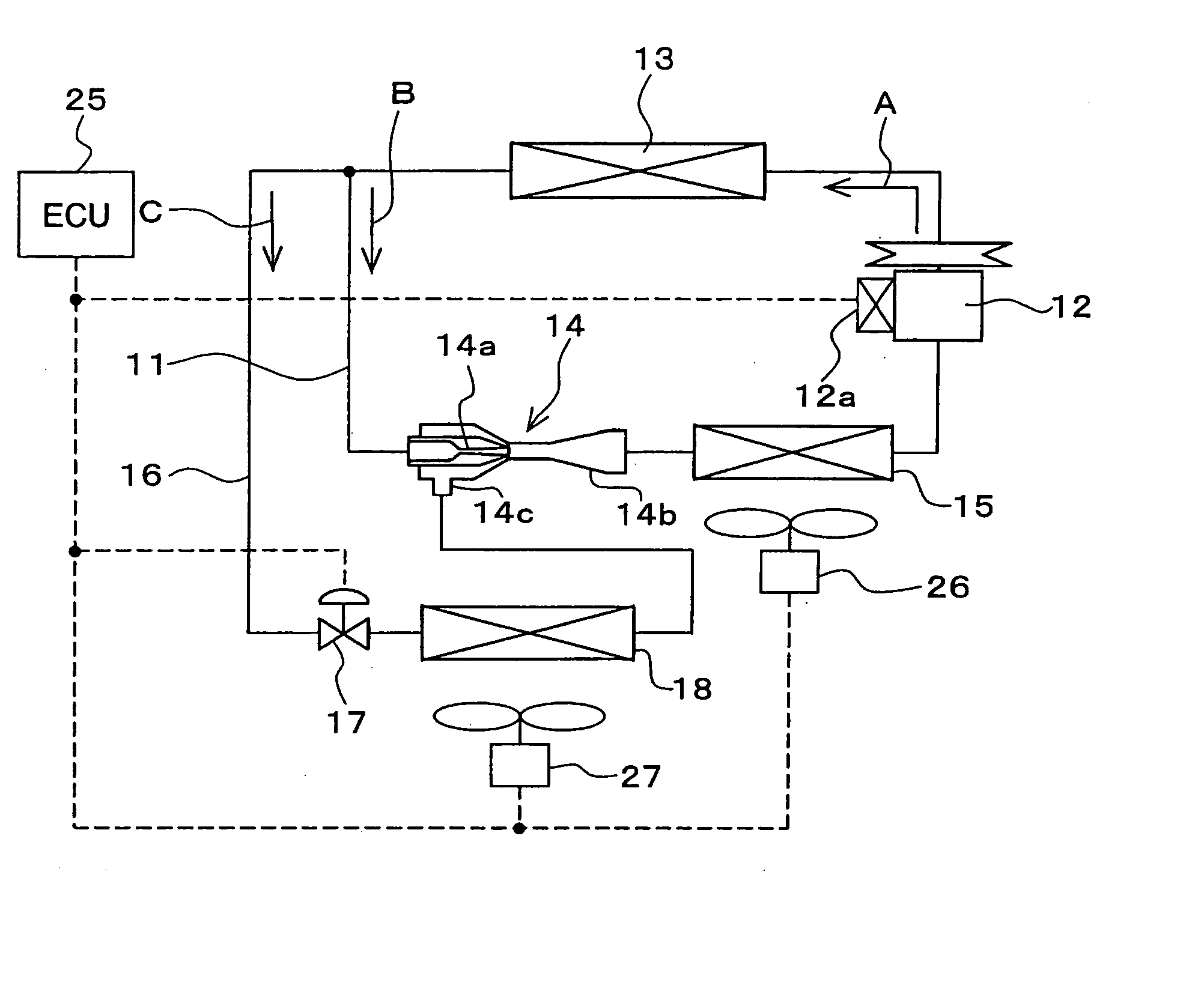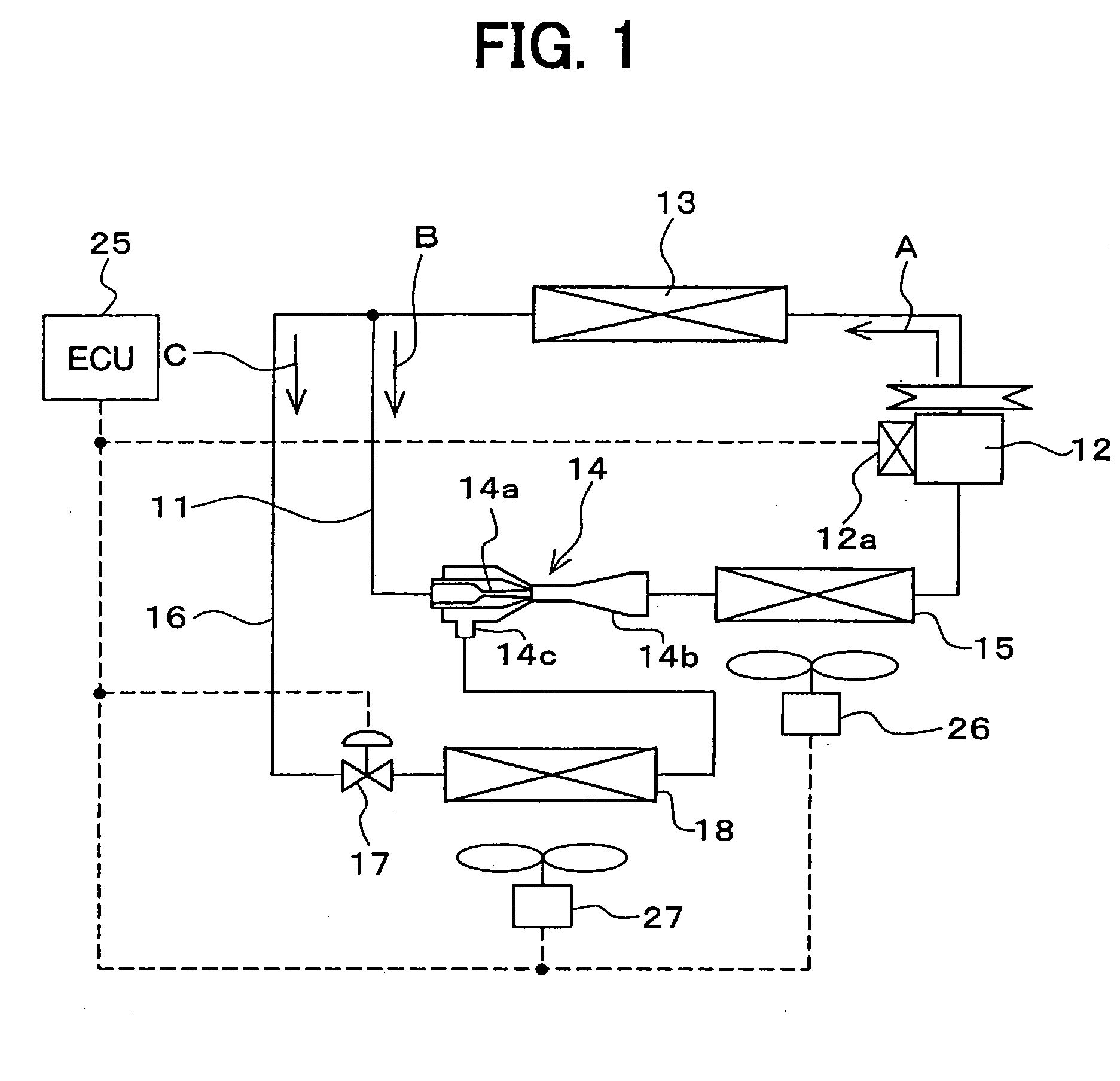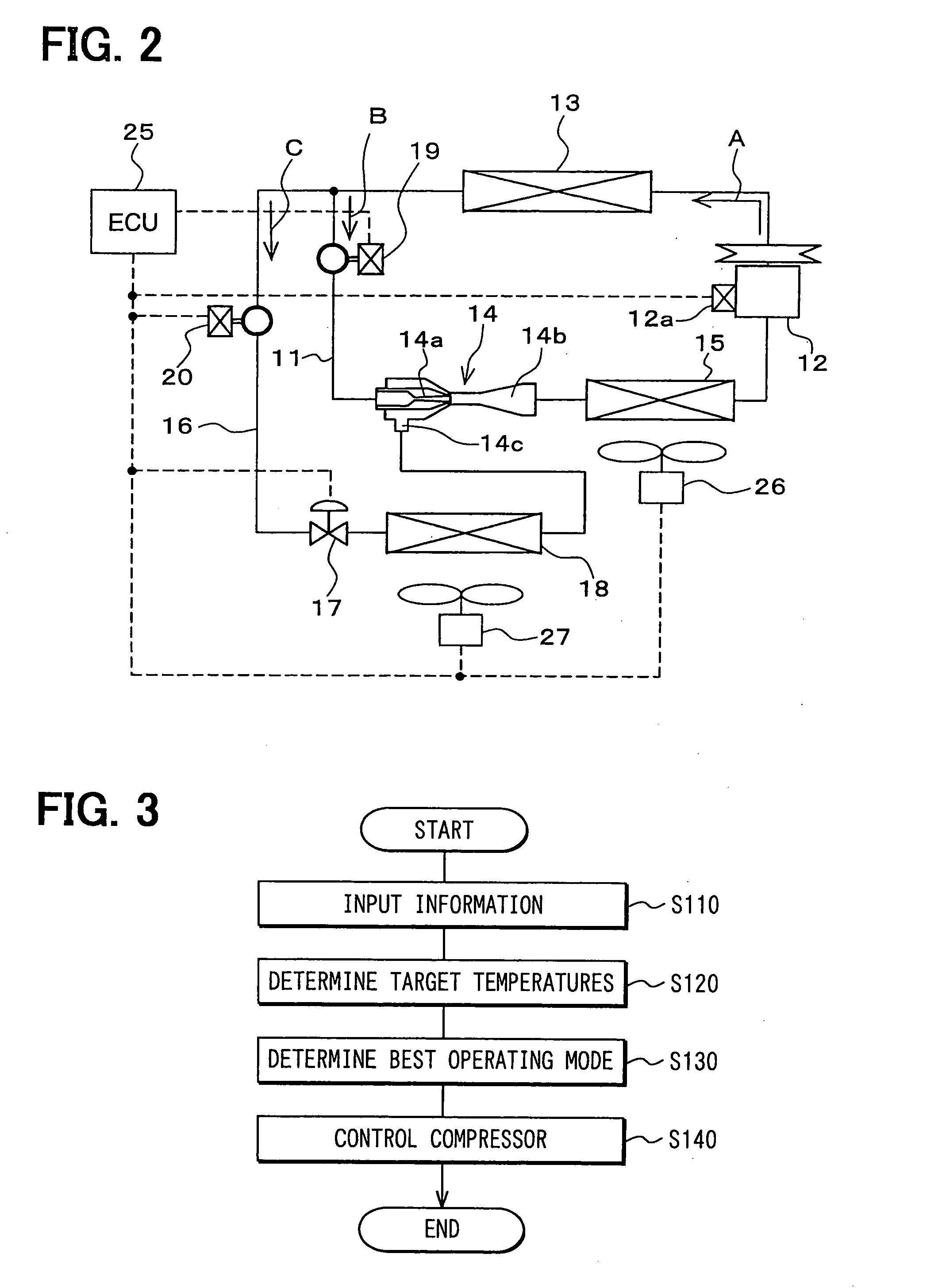Ejector cycle having multiple evaporators
a technology of ejector cycle and evaporator, which is applied in the direction of refrigeration components, transportation and packaging, light and heating equipment, etc., can solve the problems of difficulty in appropriately adjusting the flow rate of the refrigerant of the first and second evaporator, deterioration of the air conditioning feeling of the passenger, and disadvantageous increase in manufacturing costs, so as to facilitate the adjustment of the flow rate. , the effect of simple structur
- Summary
- Abstract
- Description
- Claims
- Application Information
AI Technical Summary
Benefits of technology
Problems solved by technology
Method used
Image
Examples
first embodiment
[0045]FIG. 1 shows an exemplary case where an ejector cycle according to a first embodiment of the present invention is implemented in a vehicle air conditioning and refrigerating system. The ejector cycle includes a refrigerant circulation passage 11, through with refrigerant is circulated. A compressor 12 is arranged in the refrigerant circulation passage 11. The compressor 12 draws and compresses the refrigerant supplied thereto.
[0046] In the present embodiment, the compressor 12 is rotated by, for example, a vehicle drive engine (not shown) through a belt or the like. The compressor 12 is a variable displacement compressor, which can adjust a refrigerant discharge rate through a change in its displacement. The displacement is defined as an amount of refrigerant discharged from the compressor 12 per rotation of the compressor 12. The displacement of the compressor 12 can be changed by changing an intake volume of the refrigerant in the compressor 12.
[0047] A swash plate compres...
second embodiment
[0075]FIG. 2 shows an ejector cycle of a second embodiment, which is similar to that of the first embodiment except first and second solenoid valves (a first opening and closing means and a second opening and closing means) 19, 20. The first solenoid valve 19 opens and closes the refrigerant circulation passage 11 on the upstream side of the ejector 14. The second solenoid valve 20 opens and closes the first branched passage 16 on the upstream side of the first flow rate control valve 17. Similar to the pressure control electromagnetic device 12a of the compressor 12, the opening and closing of the first and second solenoid valves 19, 20 are controlled by a corresponding signal supplied from the ECU 25.
[0076] Selection of an operating mode conducted by the ECU 25 will be described with reference to FIG. 3. First, user input information, temperature information of each subject cooling space and the temperature information of each evaporator 15, 18 are inputted to the ECU 25 at step ...
third embodiment
[0088]FIG. 5 shows an ejector cycle according to a third embodiment. The ejector cycle of the third embodiment is similar to that of the second embodiment except a second branched passage 23. The second branched passage 23 connects between a portion (a branching point) of the first branched passage 16, which is on the upstream side of the first flow rate control valve 17, and a portion (a merging point) of the refrigerant passage 11, which connects between the first evaporator 15 and the compressor 12.
[0089] A second flow rate control valve (a second metering means) 24 and a third solenoid valve (a third opening and closing means) 28 are arranged in the second branched passage 23. The second flow rate control valve 24 controls the flow rate of the refrigerant and depressurizes the refrigerant. The third solenoid valve 28 opens and closes the second branched passage 23. Furthermore, a third evaporator 22 is arranged on the downstream side of the second flow rate control valve 24 in ...
PUM
 Login to View More
Login to View More Abstract
Description
Claims
Application Information
 Login to View More
Login to View More - R&D
- Intellectual Property
- Life Sciences
- Materials
- Tech Scout
- Unparalleled Data Quality
- Higher Quality Content
- 60% Fewer Hallucinations
Browse by: Latest US Patents, China's latest patents, Technical Efficacy Thesaurus, Application Domain, Technology Topic, Popular Technical Reports.
© 2025 PatSnap. All rights reserved.Legal|Privacy policy|Modern Slavery Act Transparency Statement|Sitemap|About US| Contact US: help@patsnap.com



